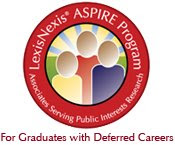In the almost twenty years that David Souter served on the US Supreme Court, the refrain about his jurisprudence concerns his shift from a conservative jurist to a liberal one. In 1992, Justice Souter disappointed conservatives with his roles in two cases: the plurality opinion in Planned Parenthood v. Casey, 505 U.S. 833 (1992), upholding the central ruling in Roe v. Wade, and the 5-4 opinion in Lee v. Weisman, 505 U.S. 577 (1992), voting against allowing prayer at a high school graduation ceremony. And in 2000, when Justice Souter dissented in Bush v. Gore, 531 U.S. 98 (2000), to allow the presidential election recount to continue, observers of the Court placed him in the liberal wing of the Court.
But Justice Souter’s tenure on the Court is of course far more nuanced. He has written 156 majority opinions for the Court. Some are worth noting. In the area of constitutional law, his opinion in McCreary County v. ACLU, 545 U.S. 844 (2005), ruling that government-sponsored displays of the Ten Commandments in county courthouses is unconstitutional under the Establishment Clause, is seen as a victory for the separation of Church and State. His opinion for a unanimous Court in Hurley v. Irish-American, Lesbian & Bisexual Group of Boston, 515 U.S. 557 (1995) held that government cannot require the organizers of a private parade to include a group with whose message they disagree. That opinion is cited as a landmark case on the right of speech and association but viewed as a setback for gay rights. Yet he joined the majority opinion ruling unconstitutional under the Due Process Clause a statute making it a crime for two persons of the same sex to engage in certain intimate sexual conduct in Lawrence v. Kansas, 539 U.S. 558 (2003). Yet as to free speech, Justice Souter’s views did not preclude his opinions upholding campaign finance regulation, in FEC v. Beaumont, 539 U.S. 146 (2003), FEC v. Colorado Republican Fed. Campaign Comm., 533 U.S. 431 (2001) and Nixon v. Shrink Mo. Gov’t PAC, 528 U.S. 377 (2000).
Some of Justice Souter’s rulings profoundly impact technology. In his landmark opinion in MGM Studios v. Grokster, 545 U.S. 913 (2005), he addressed copyright law; and his opinion in Verizon Comms. v. FCC, 535 U.S. 467 (2002) will play a central role in telecommunications regulation. His opinion in Bell Atlantic Corp. v. Twombly, 550 U.S. 544 (2007), addressed a critical question of procedure and is a major ruling on the obligation to set forth detailed allegations in a complaint.
Justice Souter’s 123 dissenting opinions disclose his leading role, particularly on the liberal wing of the Court. In his dissent in Kansas v. Marsh, 548 U.S. 163 (2006), he voiced strong concerns about the death penalty where there was evidence that wrongly convicted individuals were being executed. In the current term, he wrote the lead dissent in the Court’s most contested cases. His dissent in 14 Penn Plaza LLC v. Pyett, 129 S. Ct. 1456 (2009) challenged Justice Thomas’ opinion upholding a mandatory arbitration provision included in a collective bargaining agreement. In Bartlett v. Strickland, 129 S. Ct. 1231 (2009), Justice Souter’s dissent voiced strong support for a remedy under Section 2 of the Voting Rights Act of 1965 where there was evidence of voter dilution of racial minorities in a voting district. In his dissent in Waddington v. Sarausad, 129 S. Ct. 823 (2009), Justice Souter differed from Justice Thomas’ majority opinion limiting the authority of federal courts in habeas corpus petitions to review the decisions of state courts on instructions given to juries on an accomplice’s role in a crime.
The NY Times has a more detailed analysis of Justice Souter’s legacy in The Judgment on Justice Souter with the thoughts of nine prominent legal scholars.
 For additional reading on Justice Souter, the BLS Library has in its collection David Hackett Souter: Traditional Republican on the Rehnquist Court by Tinsley E. Yarbrough (Call #KF8745.S68 Y37 2005).
For additional reading on Justice Souter, the BLS Library has in its collection David Hackett Souter: Traditional Republican on the Rehnquist Court by Tinsley E. Yarbrough (Call #KF8745.S68 Y37 2005).





 For additional reading on Justice Souter, the BLS Library has in its collection
For additional reading on Justice Souter, the BLS Library has in its collection 

